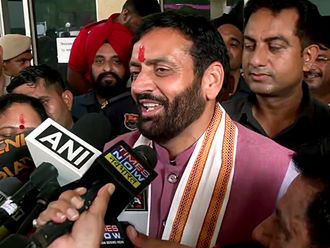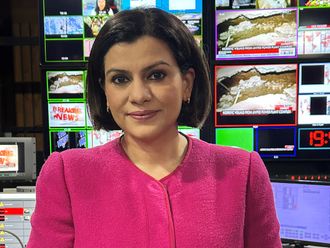The GCC’s announcement during its summit in May this year officially inviting Jordan and Morocco to become members caught many observers by surprise. Questions have been raised about the motivations and reasons behind the sudden decision.
Historically, the GCC has been an exclusive club, and most GCC states have been opposed to the idea of opening the organisation’s doors to admit new members. In fact, since the establishment of the GCC in 1981, there have been many discussions and detailed proposals to enlarge the group. Traditionally, Yemen and even Iraq were seen as likely candidates for membership based on geographical, cultural and strategic factors. Over the past few years, it was Yemen that came closest to a GCC membership having reached integration in some of the GCC institutions. However, the idea of full membership for Yemen met with resistance and its application was rejected many times. Now, the issue seems to have been postponed indefinitely.
Therefore, the unexpected decision to incorporate Jordan and Morocco in the exclusive club marked a major shift in GCC policy. The motivation behind such a step is unclear. It is evident that the invitation has come against the backdrop of the mounting political pressure and economic hardship in Jordan and Morocco. There could be the expectation that a GCC membership would provide some sort of political and economic stability to help the ruling families in both countries.
However, such strategic decisions are hardly taken in the spirit of brotherhood alone; mutual interests do play its part. This raises the fundamental question: what are the advantages for the GCC states, if any? Some say that the GCC calculates that an enlargement of the council could bring more regional stability. Most of the GCC states lack human resources, military manpower and, more importantly, strategic depth. Could an enlargement of the council, similar to the example of the European Union, deal more effectively with the many sources of internal and external threats, such as the threats emanating from popular discontent or Iran?
The recent example of GCC military aid to Bahrain has shown the limitations of GCC military capabilities, in particular of the smaller states. It also showed the dependence of states such as Bahrain on their neighbours in difficult times. By inviting Jordan and Morocco, do some of the GCC states expect that an expansion of the council could serve as a survival tool in times of crisis?
While the expansion strategy and the integration of new members might have worked out positively for the EU founding states, the benefits for the GCC from admitting Morocco and Jordan seem limited. It appears the GCC states would be taking on problems than securing benefits from such a decision. Both Morocco and Jordan are not only economically and financially weak, they also have security issues, which could not only impact but also be detrimental to the national security interests of the GCC states.
Jordan is still involved in the Palestinian-Israeli conflict. While the 1994 peace treaty between Israel and Jordan normalised relations between the two states, tensions remain over the future of the Palestinian problem, and border violations do take place occasionally. Since 1948, Jordan has served as a buffer state between the Gulf states and Israel and has spared these states direct confrontation with Israel. However, the fact that Jordan has a long and open border with Israel and the fact that most Arab states have not normalised relations with Tel Aviv could constitute a challenge for GCC stability. Strategically, if GCC is enlarged to include Jordan, it will make the GCC a direct neighbour of Israel, which willingly or unwillingly could become directly involved in the complexities of the Palestinian-Israeli conflict.
A similar challenge exists regarding the membership of Morocco. The state is involved in ongoing territorial disputes with its neighbours, Algeria and Mauritania, over the sovereignty of the Western Sahara. Inviting Morocco to the GCC will bring the state’s security problems into the bloc, and the Gulf would become part of Moroccan conflict with its neighbours. At the same time, sovereignty disputes have been taking place sporadically between Spain and Morocco over the Spanish exclaves Ceuta and Melilla and the Perejil Island, which are controlled by Spain but claimed by Morocco. While both states have declared their intention to settle the issue diplomatically, the GCC states would need to find a common position if the issue emerges again.
The GCC states’ defence agreement allows member states under threat to call for support from other GCC states, as already evident in the case of Kuwait after the Iraqi invasion in 1990 or more recently in Bahrain. Given the ongoing conflict between Israel and the Arab states, or between Morocco and it neighbours over Western Sahara, the GCC states could place themselves in a tight corner. Moreover, with some exceptions, the GCC states’ common foreign policy towards conflicts in North Africa has been rather neutral.
There is also an economic downside to the Moroccan and Jordanian membership. The Moroccan and Jordanian workforce would automatically secure the right to work as GCC citizens in the Gulf. They could enter the countries easily, would not need a visa or a working permit, and would have the right of residency. This would be a setback for the recent government initiatives to encourage nationalisation of the workforce to reduce unemployment and lessen dependency on foreign labour. It is likely to lead to dissatisfaction among local populations and could be a source of instability for the Gulf states.
The inclusion of Jordan and Morocco would, no doubt, have some benefits for both states. However, the advantages for the GCC states itself are questionable. Currently, in both Morocco and Jordan, there are ongoing debates and discussions about wide-ranging political and constitutional reforms. The public pressure in Morocco and Jordan is growing and there are mounting demands for the establishment of a constitutional monarchy similar to the British or Swedish systems. The outcome of the current political developments and promised reforms is not predictable. Nor is it clear whether the ruling regimes in Morocco and Jordan will survive the political crisis without a fundamental change of the system that could leave monarchs who might rule, but not govern. After all, the political, economic and cultural gap between the GCC states and Jordan and Morocco might be too wide to be bridged.
Nicole Stracke is Security Analyst for EXOP, a consultancy company based in Germany.











